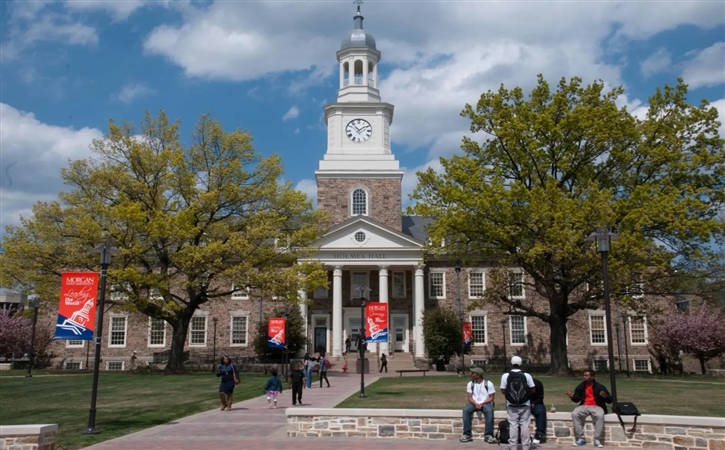Urban Educational Leadership Program

Welcome to the Urban Educational Leadership Programs
We offer two graduate programs in Urban Educational Leadership: an EdD and a PhD in Education with a concentration in Urban Educational Leadership. Our programs prepare students as scholars and leaders of urban school systems.
The educational objectives for the Ed.D. in Urban Educational Leadership and Ph.D. in Education with a concentration in Urban Educational Leadership are the following:
- To prepare students to be critical thinkers, who focus on leadership, policy, ethics, and liberation in urban education and Black education and translate that philosophy into research and practice
- To advance applied and/or theoretical research on urban education and Black education within the full P-20 educational pipeline
- To prepare students to use original and existing research to transform urban education and Black education research, policy, and practice
- To equip urban educational leaders with foundational resources and innovative cutting-edge transdisciplinary research experience
- To prepare students to center community wealth toward the liberation of urban education and Black education and create a collaborative learning community
Prospective students should already be education leaders (whether through teacher leadership, instructional leadership, school or central office leadership, administrators, policymakers, nonprofit leaders, etc.). More specific program information is below.
- Urban Educational Leadership (EdD)
- Recommended for education practitioners looking to solve complex problems of practice through developing applied research within one’s sphere of influence
- Students enter with questions and leave with strategies and solutions.
- Read more about the program here
- Education with a concentration in Urban Educational Leadership (PhD)
- Recommended for education practitioners who wrestle with big ideas on various aspects of schools, schooling, and education more broadly
- Students enter with questions and leave after producing original research for local, state, and/or national impact, to work in academia, policy, or research institutions.
- Read more about the program here
Update from February 2026: Thank you for your interest in the doctorate in Urban Educational Leadership at Morgan State University. We received an overwhelming number of outstanding applications by the priority deadline and are no longer accepting applications to the Ed.D. or the Ph.D. for the Fall 2026 cohort. We are inspired by the passion and dedication of every applicant committed to advancing urban education. We encourage you to consider us for the next academic year. If you applied but did not receive a response, you are welcome to log in to your applicant portal to defer your application to Fall 2027. For all others, we welcome you to reapply for the Fall 2027 cohort.
For more information, please complete this brief interest form or email daslp@morgan.edu.
Admission Application Deadlines:
- January 15 - Priority deadline (Especially for those seeking graduate student funding)
Are you interested in Urban Educational Leadership but not yet ready to commit to an entire program? Or perhaps you're considering taking one or two courses to use your tuition remission benefits? Consider enrolling as a non-degree student! As a non-degree-seeking student, you can take 1 -2 courses toward a graduate degree without enrolling in the program. It's a great way to explore the field, grow as a professional, and expand your professional network.
For non-degree-seeking students, the deadline to apply to the School of Graduate Studies is August 1st (to take a course in the Fall Semester) and January 8 (to take a course in Spring). Note that non-degree-seeking students are not eligible to take courses in the summer or winter semesters. Only US Citizens and Permanent Residents are eligible.
Learn more here.
For more information, please complete this brief interest form or email daslp@morgan.edu.
Our program offers three types of funding:
Many of our students also leverage their Tuition Remission benefits from local institutions like the USM schools, JHU, or Morgan State. Tuition Remission is determined and coordinated by your institution. We encourage you to speak with your HR representative about how to use these benefits.
Students can complete the EdD and the PhD programs as either high residency or low residency programs.
- High residency students will take courses on-campus, hybrid-flex, and remote synchronous modalities. Students in the high residency option should be able to come to campus for evening courses.
- Low residency students will take remote synchronous courses scheduled in the evenings and will be required to come to Baltimore for an in-person retreat during the Fall and spring semesters.
Learn more about our delivery options here.
Contact Information
Dr. Camika Royal
Program Director & Associate Professor
Department of Advanced Studies, Leadership and Policy
Banneker Building #315D
P: (443) 885-5404
E: camika.royal@morgan.edu
Interested in Our Programs?
Please contact us:
https://forms.gle/YU6U6CcEDYyhSraj8
Contact Information
Dr. Camika Royal
Program Director & Associate Professor
Department of Advanced Studies, Leadership and Policy
Banneker Building #315D
P: (443) 885-5404
E: camika.royal@morgan.edu
Interested in Our Programs?
Please contact us:
https://forms.gle/YU6U6CcEDYyhSraj8


